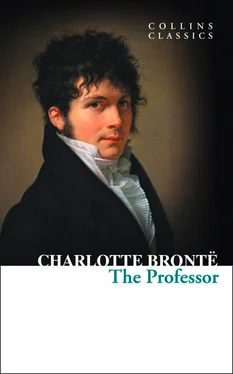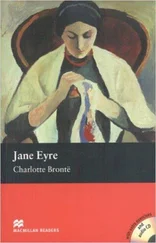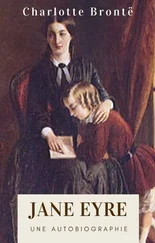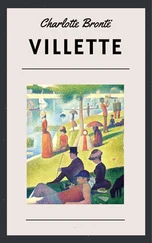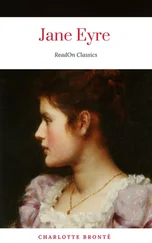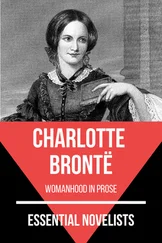‘Then,’ pursued Mr Brown, ‘I think I can promise you the place, for Monsieur Pelet will not refuse a professor recommended by me; but come here again at five o’clock this afternoon, and I will introduce you to him.’
The word ‘professor’ struck me. ‘I am not a professor,’ said I.
‘Oh,’ returned Mr Brown, ‘professor, here in Belgium, means a teacher, that is all.’
My conscience thus quieted, I thanked Mr Brown, and, for the present, withdrew. This time I stepped out into the street with a relieved heart; the task I had imposed on myself for that day was executed. I might now take some hours of holiday. I felt free to look up. For the first time I remarked the sparkling clearness of the air, the deep blue of the sky, the gay clean aspect of the white-washed or painted houses; I saw what a fine street was the Rue Royale, and, walking leisurely along its broad pavement, I continued to survey its stately hotels, till the palisades, the gates, and trees of the park appearing in sight, offered to my eye a new attraction. I remember, before entering the park, I stood awhile to contemplate the statue of General Belliard, and then I advanced to the top of the great staircase just beyond, and I looked down into a narrow back street, which I afterwards learnt was called the Rue d’Isabelle. I well recollect that my eye rested on the green door of a rather large house opposite, where, on a brass plate, was inscribed, ‘Pensionnat de Demoiselles’. Pensionnat! The word excited an uneasy sensation in my mind; it seemed to speak of restraint. Some of the demoiselles , externats no doubt, were at that moment issuing from the door – I looked for a pretty face amongst them, but their close, little French bonnets hid their features; in a moment they were gone.
I had traversed a good deal of Brussels before five o’clock arrived, but punctually as that hour struck I was again in the Rue Royale. Re-admitted to Mr Brown’s breakfast-room, I found him, as before, seated at the table, and he was not alone – a gentleman stood by the hearth. Two words of introduction designated him as my future master. ‘M. Pelet, Mr Crimsworth; Mr Crimsworth, M. Pelet.’ A bow on each side finished the ceremony. I don’t know what sort of a bow I made; an ordinary one, I suppose, for I was in a tranquil, commonplace frame of mind; I felt none of the agitation which had troubled my first interview with Edward Crimsworth. M. Pelet’s bow was extremely polite, yet not theatrical, scarcely French; he and I were presently seated opposite to each other. In a pleasing voice, low, and, out of consideration to my foreign ears, very distinct and deliberate, M. Pelet intimated that he had just been receiving from ‘le respectable M. Brown’, an account of my attainments and character, which relieved him from all scruple as to the propriety of engaging me as professor of English and Latin in his establishment; nevertheless, for form’s sake, he would put a few questions to test; my powers. He did, and expressed in flattering terms his satisfaction at my answers. The subject of salary next came on; it was fixed at one thousand francs per annum, besides board and lodging. ‘And in addition,’ suggested M. Pelet, ‘as there will be some hours in each day during which your services will not be required in my establishment, you may, in time, obtain employment in other seminaries, and thus turn your vacant moments to profitable account.’
I thought this very kind, and indeed I found afterwards that the terms on which M. Pelet had engaged me were really liberal for Brussels; instruction being extremely cheap there on account of the number of teachers. It was further arranged that I should be installed in my new post the very next day, after which M. Pelet and I parted.
Well, and what was he like? and what were my impressions concerning him? He was a man of about forty years of age, of middle size, and rather emaciated figure; his face was pale, his cheeks were sunk, and his eyes hollow; his features were pleasing and regular, they had a French turn (for M. Pelet was no Fleming, but a Frenchman both by birth and parentage), yet the degree of harshness inseparable from Gallic lineaments was, in his case, softened by a mild blue eye, and a melancholy, almost suffering, expression of countenance; his physiognomy was fine et spirituelle . I use two French words because they define better than any English terms the species of intelligence with which his features were imbued. He was altogether an interesting and prepossessing personage. I wondered only at the utter absence of all the ordinary characteristics of his profession, and almost feared he could not be stern and resolute enough for a schoolmaster. Externally at least M. Pelet presented an absolute contrast to my late master, Edward Crimsworth.
Influenced by the impression I had received of his gentleness, I was a good deal surprised when, on arriving the next day at my new employer’s house, and being admitted to a first view of what was to be the sphere of my future labours, namely the large, lofty, and well lighted schoolrooms, I beheld a numerous assemblage of pupils, boys of course, whose collective appearance showed all the signs of a full, flourishing, and well-disciplined seminary. As I traversed the classes in company with M. Pelet, a profound silence reigned on all sides, and if by chance a murmur or a whisper arose, one glance from the pensive eye of this most gentle pedagogue stilled it instantly. It was astonishing, I thought, how so mild a check could prove so effectual. When I had perambulated the length and breadth of the classes, M. Pelet turned and said to me, ‘Would you object to taking the boys as they are, and testing their proficiency in English?’
The proposal was unexpected. I had thought I should have been allowed at least 3 days to prepare; but it is a bad omen to commence any career by hesitation, so I just stepped to the professor’s desk near which we stood, and faced the circle of my pupils. I took a moment to collect my thoughts, and likewise to frame in French the sentence by which I proposed to open business. I made it as short as possible, ‘Messieurs, prenez vos livres de lecture.’
‘Anglais ou Francais, monsieur?’ demanded a thickset, moon-faced young Flamand in a blouse. The answer was fortunately easy: ‘Anglais.’
I determined to give myself as little trouble as possible in this lesson; it would not do yet to trust my unpractised tongue with the delivery of explanations; my accent and idiom would be too open to the criticisms of the young gentlemen before me, relative to whom I felt already it would be necessary at once to take up an advantageous position, and I proceeded to employ means accordingly.
‘Commencez!’ cried I, when they had all produced their books. The moon-faced youth (by name Jules Vanderkelkov, as I afterwards learnt) took the first sentence. The livre de lecture was The Vicar of Wakefield , much used in foreign schools because it is supposed to contain prime samples of conversational English; it might, however, have been a Runic scroll for any resemblance the words, as enunciated by Jules, bore to the language in ordinary use amongst the natives of Great Britain. My God! how he did snuffle, snort, and wheeze! All he said was said in his throat and nose, for it is thus the Flamands speak, but I heard him to the end of his paragraph without proffering a word of correction, whereat he looked vastly self-complacent, convinced, no doubt, that he had acquitted himself like a real born and bred ‘Anglais’. In the same unmoved silence I listened to a dozen in rotation, and when the twelfth had concluded with splutter, hiss, and mumble, I solemnly laid down the book.
‘Arrêtez!’ said I. There was a pause, during which I regarded them all with a steady and somewhat stern gaze; a dog, if stared at hard enough and long enough, will show symptoms of embarrassment, and so at length did my bench of Belgians. Perceiving that some of the faces before me were beginning to look sullen, and others ashamed, I slowly joined my hands, and ejaculated in a deep voix de poitrine –
Читать дальше
